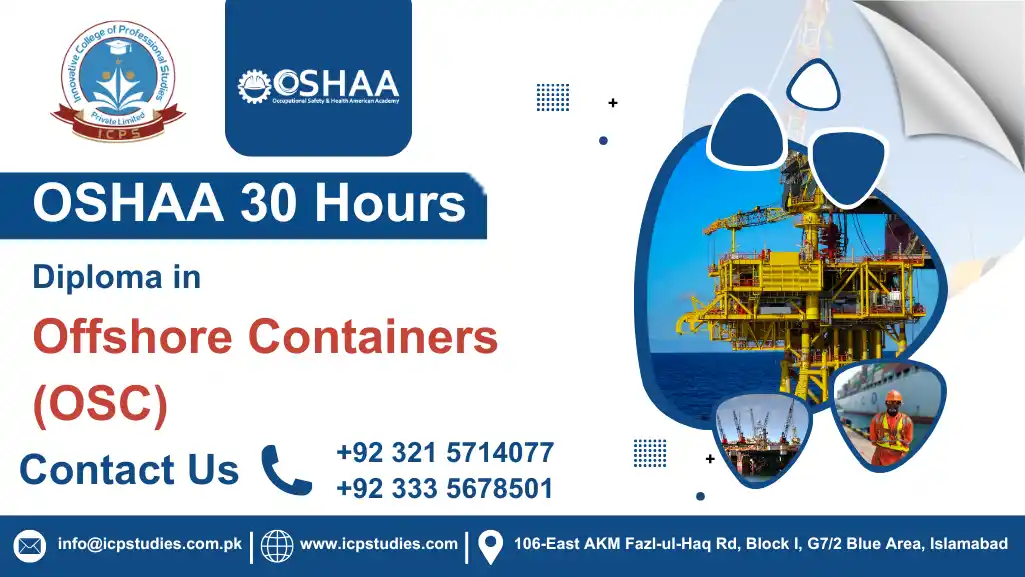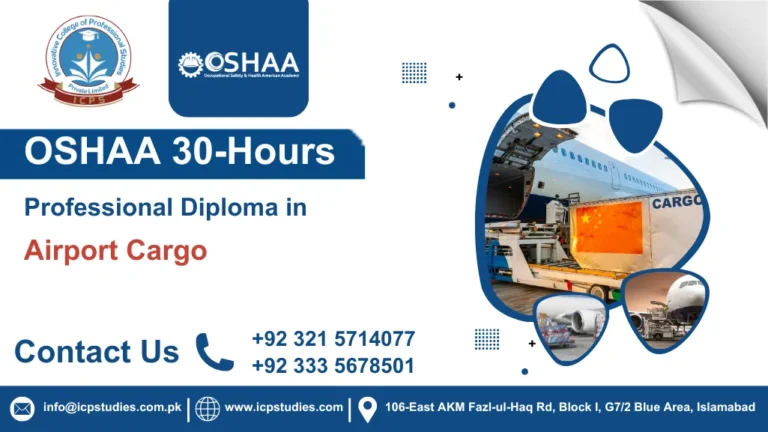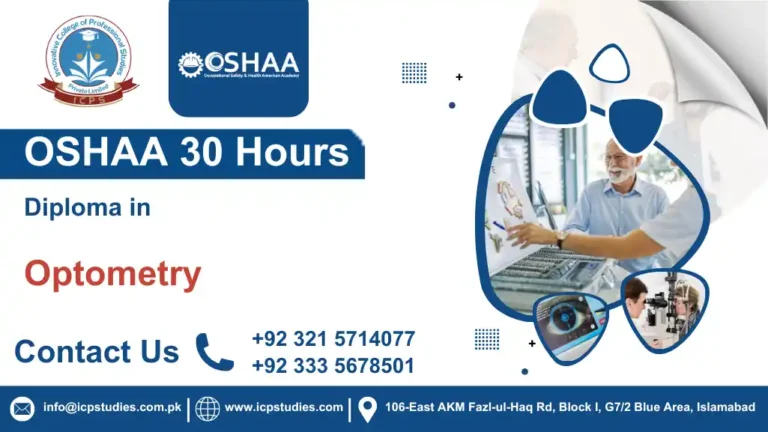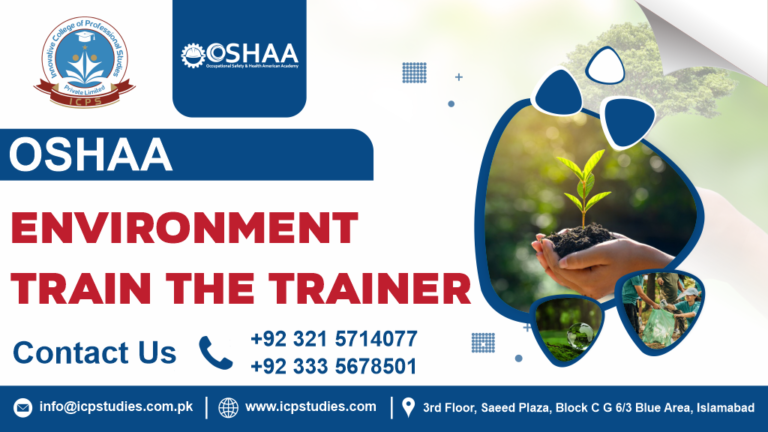The OSHAA 30-Hours Diploma in Offshore Containers (OSC) is a specialised training programme designed to provide participants with essential knowledge and practical skills in the safe handling, inspection, and maintenance of offshore containers. This course meets international safety standards, ensuring that professionals working in offshore operations are equipped to prevent accidents, enhance operational efficiency, and comply with regulatory requirements. With a strong focus on safety management, compliance, and operational best practices, this qualification supports both career advancement and organisational safety performance. It is particularly suitable for those involved in offshore oil, gas, marine, and renewable energy industries.
The OSHAA 30-Hours Diploma in Offshore Containers (OSC) covers a comprehensive range of topics, including container design, certification requirements, lifting operations, inspection procedures, and maintenance practices. Participants will gain an in-depth understanding of the legal frameworks, industry guidelines, and operational protocols that govern offshore container usage. By completing this course, learners will be able to identify potential hazards, conduct inspections to recognised standards, and implement preventative measures to ensure the structural integrity and safe handling of offshore containers. The curriculum blends theoretical knowledge with practical applications, making it highly relevant for field operations.
The OSHAA 30-Hours Diploma in Offshore Containers (OSC) offers industry-recognised training that blends theoretical and practical learning. Delivered to UK professional standards, it equips learners with the skills necessary to operate in high-risk offshore environments safely and efficiently. The course is developed by industry experts and aligns with international best practices, making it a trusted choice for career development. After completing this qualification, learners can progress to advanced offshore safety and inspection certifications, such as specialised lifting operations training, offshore safety management programmes, or higher-level qualifications in marine and oil and gas operations.
All About OSHAA 30-Hours Diploma in Offshore Containers (OSC)
Course Overview
The OSHAA 30-Hours Diploma in Offshore Containers (OSC) is a specialised training programme focused on the safe handling, inspection, and maintenance of offshore containers used in oil, gas, marine, and renewable energy operations. It is designed to meet international safety regulations and industry standards, ensuring learners gain the competence required for high-risk offshore environments.
This OSHAA 30-Hours Diploma in Offshore Containers (OSC) provides in-depth knowledge of offshore container design, certification requirements, safe lifting procedures, and defect detection. Participants will learn how to identify potential hazards, conduct thorough inspections, and maintain compliance with relevant regulatory frameworks, reducing the risk of accidents and operational failures.
With a practical and industry-relevant approach, the diploma blends theoretical learning with applied skills, preparing learners to work effectively in offshore logistics and safety management roles. The content is tailored for inspectors, lifting supervisors, engineers, and safety officers seeking to enhance their expertise.
Completing the OSHAA 30-Hours Diploma in Offshore Containers (OSC) can significantly improve career prospects by equipping professionals with internationally recognised skills in container safety and compliance. It also provides a strong foundation for progressing into advanced offshore safety and inspection qualifications.
Study Units
- Introduction to Offshore Containers and Industry Regulations
- Design and Manufacturing Standards
- Inspection and Testing Procedures
- Maintenance and Repairs of Offshore Containers
- Lifting Operations and Rigging Practices
- Container Identification, Marking, and Traceability
- Corrosion Protection and Surface Treatment
- Risk Assessment and Hazard Control
- Roles and Responsibilities in Offshore Logistics
To enrol in the OSHAA 30-Hours Diploma in Offshore Containers (OSC) and ensure successful participation, applicants must meet the following criteria:
- Minimum Age
Candidates must be at least 18 years old at the time of enrolment to ensure they are prepared for offshore safety responsibilities. - Educational Background
A basic level of secondary education or equivalent is recommended. Possessing technical or vocational qualifications in engineering, logistics, or related fields will be an advantage. - Work Experience
While prior offshore, lifting, or container handling experience is beneficial, it is not a mandatory requirement. The course is also suitable for beginners seeking to develop industry-specific skills. - Language Proficiency
Applicants must have a good command of written and spoken English, as all learning materials, assessments, and training sessions are conducted in English.
The OSHAA 30-Hours Diploma in Offshore Containers (OSC) is intended for individuals working in, or aspiring to join, offshore industries where container handling, inspection, and maintenance are critical to operational safety.
This course is designed for:
- Offshore container inspectors responsible for ensuring structural integrity and safety compliance
- Lifting supervisors involved in the safe handling and movement of offshore containers
- Offshore logistics personnel managing container operations in high-risk environments
- Safety officers overseeing health and safety compliance in offshore projects
- Engineers working in offshore oil, gas, marine, or renewable energy sectors
- Individuals seeking to begin a career in offshore logistics or safety management
- Professionals aiming to enhance their technical expertise in container inspection and maintenance
By undertaking this diploma, learners will be better equipped to meet industry safety standards, reduce operational risks, and contribute effectively to the safe and efficient management of offshore container operations.
Learning Outcomes
Introduction to Offshore Containers and Industry Regulations
- Understand the purpose, types, and applications of offshore containers in various industries
- Identify key international regulations and guidelines governing offshore container operations
- Recognise the importance of compliance in maintaining safety and operational efficiency
Design and Manufacturing Standards
- Explain the principles of offshore container design and construction
- Interpret manufacturing standards and specifications relevant to offshore containers
- Evaluate container suitability based on design criteria and operational requirements
Inspection and Testing Procedures
- Apply correct inspection techniques to identify defects or non-compliance issues
- Perform visual and functional testing according to industry standards
- Document inspection results accurately for audit and compliance purposes
Maintenance and Repairs of Offshore Containers
- Implement preventive maintenance schedules to ensure container safety and longevity
- Identify appropriate repair methods for different types of damage
- Maintain detailed repair and maintenance records in line with regulatory expectations
Lifting Operations and Rigging Practices
- Apply safe lifting and rigging techniques to prevent accidents and equipment damage
- Assess load weights and centre of gravity for secure handling
- Follow approved lifting plans and operational safety procedures
Container Identification, Marking, and Traceability
- Interpret industry-standard container identification codes and markings
- Apply correct marking requirements for compliance with international regulations
- Maintain accurate records to ensure full traceability of containers throughout their lifecycle
Corrosion Protection and Surface Treatment
- Identify common corrosion risks affecting offshore containers
- Select suitable surface treatments and protective coatings for various environments
- Apply corrosion prevention techniques to extend container lifespan
Risk Assessment and Hazard Control
- Conduct effective risk assessments for offshore container operations
- Identify potential hazards and implement control measures
- Monitor and review safety practices to maintain risk at acceptable levels
Roles and Responsibilities in Offshore Logistics
- Understand the key roles involved in offshore logistics and container handling
- Define responsibilities for safety, compliance, and operational efficiency
- Coordinate effectively with team members to ensure safe and smooth operations
FAQs OSHAA 30-Hours Diploma in Offshore Containers (OSC)







